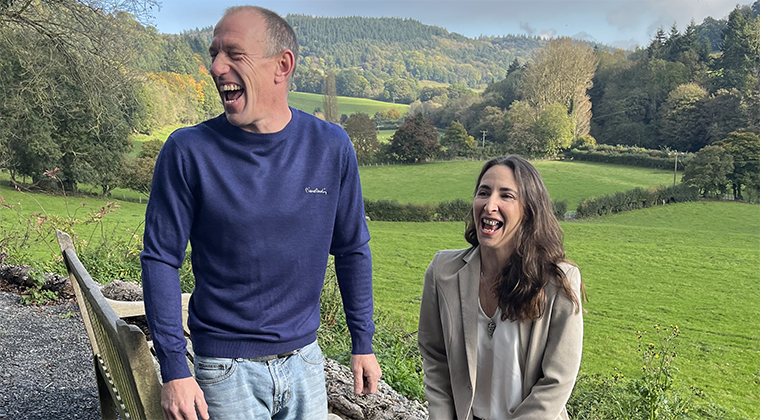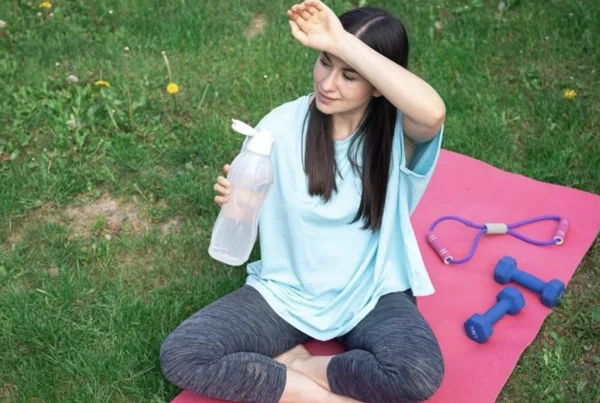This time of year, for many, has a lot of pressure dumped on it.
Not only are you navigating the demands of the festive season – family gatherings and gifts – our shorter and darker days have an impact on our relationships too. Our children have been whipped up into a Christmas frenzy for the past 3 weeks and then it’s over to you to manage the inevitable highs and lows of emotions.
It also doesn’t surprise us that January is the time when most people file for divorce or split from their partners – it’s a lot to carry if you are doing it alone, from an empty cup. Because let’s face it, regulation of our nervous systems is just yet another thing we need to take care of, and for even the most well intentioned of us, it falls to the bottom of the list.
The way we feel about ourselves is the foundation of all of our relationships. Our insecurities and the failures we feel, are almost always developed through our early experiences with family and friends – often around family gatherings or this very time of year.
Being conscious of that fact is the first step to healing old triggers and patterns that can crop up.
At Christmas and New Year, we are either around family and friends that may have contributed to these feelings growing up, or we avoid being around them because of the way we feel when we are.
Either way it can be a time when our inner feelings are brought to the surface, and this often plays out in our relationship with our partner.
There are some really easy ways to address these triggers, which we’d love to share with you.
Communication is key
No-one is inside your head, they will never be able to accurately guess how you’re feeling, so let your partner know that when your sister arrives looking like she stepped out of a glossy magazine, whilst you’re covered in sweat from cooking, and smelling like turkey grease; it brings up your childhood feelings of not being beautiful enough.
Or when your mother-in-law comments that the roasties aren’t quite crispy or done to her specifications, it reminds you of your feelings of not being good enough.
If you communicate only how you feel without apportioning blame, it gives your partner an opportunity to understand why you may be more reactive than usual.
Express Your Needs
Be honest with yourself if you need something, ask for it.
We are all guilty of saying our partners don’t understand, but we aren’t always clear about what we really need.
Learn to say “when I don’t feel beautiful I need you to be a little extra attentive, I need the compliments, the reassuring touches”.
Or I really need you to help me with gift wrapping, shopping or just staying on top of the chores. Being vulnerable and admitting we need something can be scary, but it’s also key in creating a safe foundation within our relationships.
You get to really know and be there for each other. And they learn how to help and support you.
Listen
In a partnership we each have our own insecurities, when our partners express a concern, these insecurities lead us to assume it’s a personal criticism – we rush to defend ourselves or ‘fix’ it.
As a result, they often don’t get to fully express how they feel because they don’t want to cause upset or be told they’re wrong.
This may work to ‘keep the peace’ in the short term, but it also means much of what we feel goes unresolved; and at some point, that will bubble back up again.
Listen without responding, take time to really hear each other, without internalising what it means to us. It can be challenging, but when we can do this with love it opens the doors to much deeper understanding and connection.
Take a Breath
I know, we’ve all heard it – just take a breath, calm down.
Listen if you are at that point, it’s not going to work anyway.
The trick is to breathe before the issues surface. In fact we are often not aware that we are holding our breath!
Did you know that we breathe 25,000 times a day(!) and huge benefits can come from just adjusting your breathing?
Taking a slow deep breath in through the nose and out through the mouth can bring real calm – and often defuse any stressful situations. By doing this simple adjustment – of breathing in through the nose and out through the mouth, you can improve athletic performance, organ function, and can help with asthma, allergies and so much more.
Taking 10 minutes a day really does keeps the rage at bay!
If you have enjoyed reading our thoughts around self-regulation and being more conscious as a couple, then please do check us out.
It truly is possible to have peace at Christmas time, it just starts and ends with you.
Written By Sara Goode and Matthew Donnachie
ABOUT
Sara Goode and Matthew Donnachie are holding space for a Conscious Couples retreat in 26-29 January at Llangollen, Wales. They plan to hold more retreats for couples throughout the year. To learn more https://bit.ly/consciouscouplesretreat
Sara Goode is a Women’s Mentor, who helps clients move from co-dependence to sovereignty. A trauma thriver, it was a near death experience in 2015 that led to her complete transformation. Becoming a fully certified Robbins and Madanes Strategic Intervention Coach; and certified NLP and Reiki practitioner.
Passionate about helping others, Sara is a founding member of the award winning Wrexham Critical Care Support Group – offering support for those friends and family who have experienced critical illness. She is also a volunteer and now Vice Chair of the IHS, the charity that owns and manages Tan-y-Garth Hall Retreat, in Wales.
Matthew Donnachie is the founder of Inner Balance Life – which offers bespoke action therapy and coaching – which includes a combination of trauma informed breathwork, cold water therapy and shamanic/energetic guidance.
Based in Llangollen, Wales, Matthew has built up client practices in North and South Wales, Surrey and London. Fully trained in Breath4Life Breathwork, NLP, Reiki and energetic medicines, Matthew now helps men come back from the brink, and women process underlying sexual trauma through leveraging the power of their breath.







